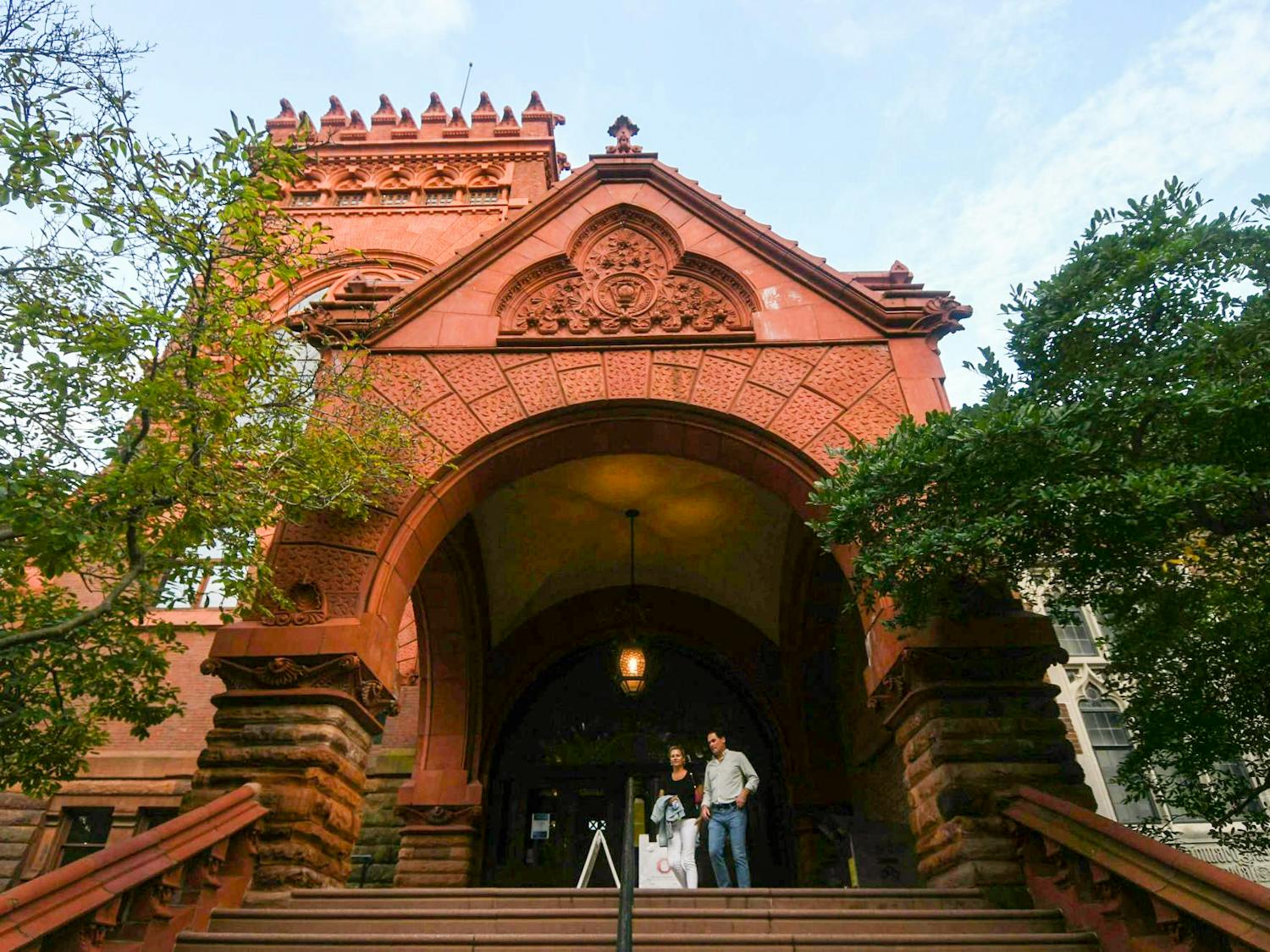Some professors say the virtual format of the fall semester has worked better than they had anticipated, crediting the surprising success to the hard work and flexibility of their students.
After Penn reversed its plan to conduct a hybrid fall semester in favor of a completely virtual semester, some professors, particularly those teaching STEM classes, said they were working triple the usual amount to transition their materials and lectures to an online format.
Reflecting back on the positive experiences of the unprecedented semester, professors nevertheless said they hoped to return to teaching in person as soon as possible.
Economics professor Anne Duchene attributes the success of ECON 001: Introduction to Microeconomics this semester to the approximately 620 students who quickly adjusted to the online learning format. Duchene recorded short, asynchronous video lectures, assigned textbook reading comprehension checks graded on completion, and graded weekly quizzes instead of the normal midterm exam.
“I’m happy with how the semester went, but to be honest, I’m also happy that it’s over,” Duchene said. “It was a very challenging semester for everybody, and I can’t wait to go back to the classroom.”
To alleviate the stress and difficulties brought on by online learning during the pandemic, Duchene said she graded assessments more generously, even adding buffer points at the end of the semester to boost students' grades.
In contrast with Duchene's 620-person lecture, English professor Toni Bowers' two courses this semester each had only 10 students who attended weekly Zoom discussions. Bowers, however, voiced similar sentiments to Duchene's, applauding the students for being open to making the best out of the virtual format.
“I do feel very surprised and happy with how it went, largely because Penn students step up and they try something new,” Bowers said. “I was lucky to have two small groups of very intent students who were able to take risks.”
RELATED:
‘Time to think’: Students on gap semesters reflect on chance to relax and explore interests
Penn will open on-campus housing for spring semester and hold most classes remotely
For her course ENGL 392: Topics In Film: European Pantomime and the Films of Charles Chaplin, Bowers had intended for students to perform pantomime, a type of musical comedy, at locations around Philadelphia. To accommodate the completely virtual format, she had to change the course structure so that students would perform to their classmates on Zoom instead.
Despite the lost experience of performing around the city, Bowers said the online structure allowed her to invite guest speakers from around the world to join Zoom class sessions who likely would not have been able to travel to Penn in a normal semester.
Communications lecturer Dwayne Booth, who teaches COMM 282: Sick and Satired: The Insanity of Humor and How it Keeps Us Sane, also agreed the fall semester went better than he had expected. He said the political implications of the satire discussed in his 40-person class were particularly relevant this semester due to the presidential election.
Roy and Diana Vagelos Professor in Chemistry David Christianson was similarly pleased with CHEM 251: Principles of Biological Chemistry this semester given the online format, adding that he believes students have performed similarly to those in previous semesters that were conducted in person.
"I suppose we all entered with a sense of trepidation, and after maybe two or three lectures, the students really began feeling like they sat through a real lecture and learned stuff," he said.
Christianson held synchronous lectures on Zoom that were also recorded for students who could not attend live sessions. He added that the Chemistry Department may continue to utilize the recorded lectures even when classes can be held in person to supplement the in-person lectures.
In order to create a sense of community in CHEM 251, Christianson hosted virtual “lunch bunch” every Wednesday and Friday with eight students where they could get to know one another and discuss current scientific events. He said it was important to him that his students felt connected and were able to create relationships despite the remote setting.
“We have students as far west as Hawaii, and as far east as Abu Dhabi,” Christianson said. “It was a great way to meet people, because the kind of interaction that might happen normally in person was happening in lunch bunch sessions as well.”
For Dick Polman, a writer in residence at the Center for Programs in Contemporary Writing, he felt more of a responsibility to keep his students engaged than in other semesters due to his courses' three-hour seminars conducted over Zoom.
One of the difficulties with online learning students have pointed to is "Zoom fatigue" from staring at their screens all day.
Polman added that while he considers this semester to be a success given the challenging circumstances, he looks forward to teaching again in person, which he hopes will be in fall 2021.
“We’re all trying to make this the best we can and provide as much quality education as we can, but nothing beats human contact,” Polman said.









